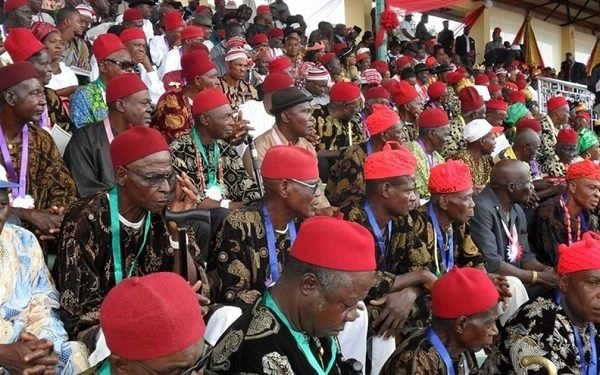Ohanaeze Ndigbo Calls for Ethnicity and Religion to be Included in 2025 Census
 Ohanaeze Ndigbo, the apex Igbo socio-cultural organization, has advocated for the inclusion of ethnicity and religion as key categories in the forthcoming 2025 National Population Census. The group emphasized that this inclusion is critical for ensuring accurate demographic representation of the Igbo people and other ethnic groups across Nigeria.
Ohanaeze Ndigbo, the apex Igbo socio-cultural organization, has advocated for the inclusion of ethnicity and religion as key categories in the forthcoming 2025 National Population Census. The group emphasized that this inclusion is critical for ensuring accurate demographic representation of the Igbo people and other ethnic groups across Nigeria.
In a statement issued on Thursday by Okechukwu Isiguzoro, the factional Secretary-General of Ohanaeze, the organization acknowledged the efforts of President Bola Tinubu in restructuring Nigeria through the creation of six geopolitical zones Development Commissions. The group described this initiative as a positive step towards addressing historical imbalances and fostering national unity.
However, Ohanaeze stressed that the real realization of the country’s restructuring aspirations depends on the 2025 Census. According to the statement, the inclusion of ethnicity and religion in the census would ensure that demographic data accurately reflects the diversity of Nigeria’s population, including the Igbo people, who are spread across all 774 local government areas in the country.
The organization expressed concern over past censuses, which they argued were marred by fraudulent representations and inaccurate ethnic data. They called on the Federal Government to adopt proactive measures to ensure that the upcoming census provides truthful and reliable information, which could help avoid disputes arising from skewed demographic portrayals.
In addition to advocating for fair census practices, Ohanaeze Ndigbo also called on Igbo investors to take the lead in establishing an international economic hub in the South-East. The group highlighted the proposed Tax Reforms Bill by the Tinubu administration as a golden opportunity to attract Igbo investments back to their homeland, reversing the historical trend of Igbo investments being concentrated in other regions. The initiative, according to Ohanaeze, could significantly contribute to the revitalization of the South-East’s economy and promote sustainable growth for the Igbo nation.
The group also reiterated its unwavering stance on the unconditional release of Mazi Nnamdi Kanu, a key political figure in the Igbo community.
On the issue of leadership within Ohanaeze, Isiguzoro raised concerns about recent political maneuvers by some South-East Governors to impose a President-General from outside Rivers State, particularly from Egbema in Imo State. He argued that such actions threaten the core values and identity of the Igbo people, stressing that the indigenous Igbos of Rivers State must not have their claims diminished. Ohanaeze vowed to resist any imposition that conflicts with the organization’s constitution and undermines the heritage and aspirations of the Igbo people.
This statement underscores Ohanaeze Ndigbo’s commitment to promoting Igbo interests both politically and economically while ensuring that their identity and rights are respected on the national stage.













